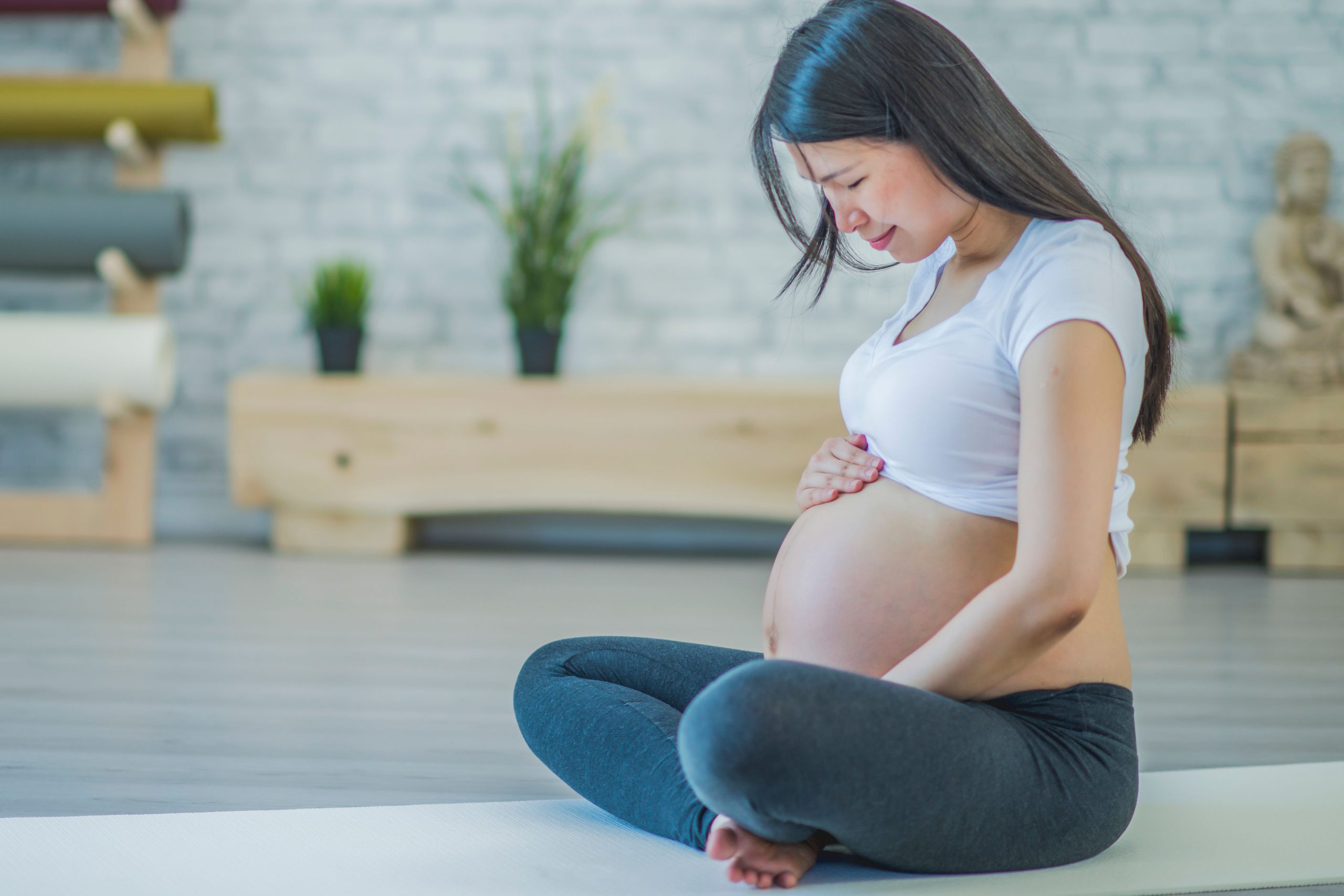The Tea
It’s not surprise that your body will change in a multitude of ways during pregnancy, but we don’t always think about how it can affect our hair. Many women experience changes in their hair texture and growth during pregnancy. Some are positive, with women swearing their hair has never been more luscious or beautiful. Others are more concerning, with women finding their hair thinner or their scalp more sensitive than usual.
The reason? Hormones can make your hair grow faster and fall out less, but these hair changes usually aren’t permanent. Some women will find themselves losing more hair than usual in the postpartum period or after they stop breastfeeding. Some will find the entire texture of their hair changing during pregnancy – it’s not as common as other hair changes, but it does happen to some women. This is because the shape of the hair follicle can actually change, turning hair from wavy to straight, or straight to curly.
Whether you’re currently experiencing pregnancy-related hair changes or you’re making plans for the future, here are 6 ways that pregnancy can change your hair.
The Brew
1. Pregnancy Can Cause Hair Loss
Don’t fret – hair loss during pregnancy is normal, especially when related to hormone changes or certain health conditions. It could be triggered due to stopping the contraceptive pill, experiencing an abortion or miscarriage, or having a hormonal imbalance during pregnancy.
Many women see hair loss within a few months of delivery, generally peaking around four months postpartum. This is not true hair loss, but rather “excessive hair shedding” caused by a drop in the hormone estrogen. Growth should resume with time, but if you’re concerned with the amount of hair you’re losing you can always seek treatment for the underlying cause.
2. Pregnancy Can Cause Hair Dryness
It’s not uncommon to find your hair has become dry, coarse, and straw-like during pregnancy. This could be down to the fact that your changing body just isn’t stimulating your skin’s sebaceous glands to produce as much of an oily substance called sebum as they used to.
Dry hair during pregnancy is often a direct consequence of hormonal disorders that take place in the body. Although one cannot act on the exact cause of the appearance of dry hair, it is possible to reduce it by giving your hair extra hydration and moisture, and by avoiding drying and stripping products. Seek out products with moisturizing and nourishing ingredients, like olive oil, grapeseed oil, almond oil, jojoba oil, coconut oil, argan oil, avocado oil, and honey.
3. Pregnancy Can Make Your Hair Frizzy
Frizz is often a side-effect of dryness, which is why some pregnancy women may experience their hair becoming frizzier than it was pre-partum.
Fortunately, there are lots of anti-frizz products on the market. Ultimately, you’ll want nourishing ingredients that give your locks the hydration they need to stay smooth and silky. These include hyaluronic acid, shea butter, aloe vera, macadamia nut oil, and cocoa butter. You’ll also want a hydrating conditioner with keratin, protein and/or natural oils. Natural oils are better than synthetic ones because they can be easily absorbed into your hair, while protein-infused conditioners will manage frizz and create shine.
4. Pregnancy Can Change The Texture Of Your Hair
The increased levels of hormones in your pregnant body can cause your hair texture to completely change. If you have poker-straight hair, you might get slight kinks or even full-on curls. If you have curly hair, you might find it will straighten out.
5. Pregnancy Can Change The Color Of Your Hair
You may see your hair change color during pregnancy, as the hormones and chemicals in your body can lead to an increase in melanin. For some women, this change can even be permanent.
6. Pregnancy Can Cause Dandruff
Dandruff during pregnancy is often a result of hormonal changes. The hair care products you used to rely on may start to irritate the scalp, which in turn causes dandruff. While pregnant, the body is more sensitive to skin changes, therefore it may be worth updating your hair care routine to accommodate these hormonal fluctuations.
How to Get Rid of Dandruff?
The first thing you’ll need to do is consult a doctor to confirm the right course of action. It is important that you act carefully to ensure the products you use don’t cause more issues. That being said, there are various home remedies for dandruff that you can employ yourself:
- Aloe Vera
This gooey goodness works wonders in calming an itchy scalp while removing excess oiliness. Its anti-inflammatory and anti-fungal properties have shown to significantly reduce the occurrence of dandruff during pregnancy, while moisturising hair at the same time. You can apply it directly to your scalp, add it into a hair mask, or simply seek out products made with aloe vera.
- Essential oils
Massaging essential oils like jojoba oil, castor oil, and almond oil are a great way to reduce your dandruff inflammation and can also be relaxing. This boosts blood circulation to your scalp and adds a protective layer against heat.
The Pour
If your changing hair has ever concerned you during pregnancy, try not to worry about it too much. Most of these changes are temporary and can be remedied with the right care and products. It can be painful to lose your crowning glory if you’re experiencing hair loss or irritation that you’ve never felt before, but it’s nothing that some TLC can’t fix!






















0 Comments for “6 Ways Pregnancy Can Change Your Hair”